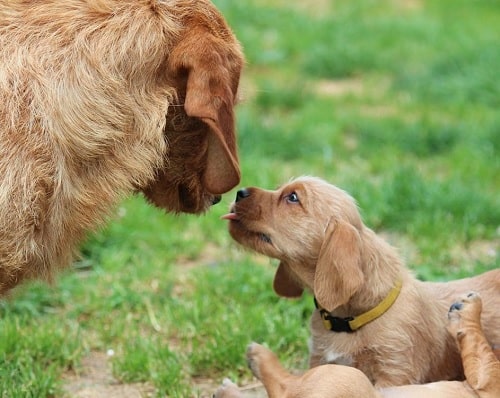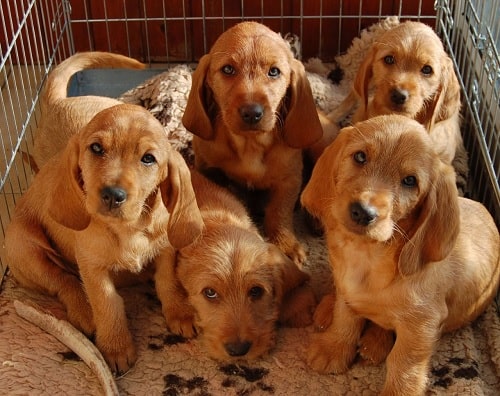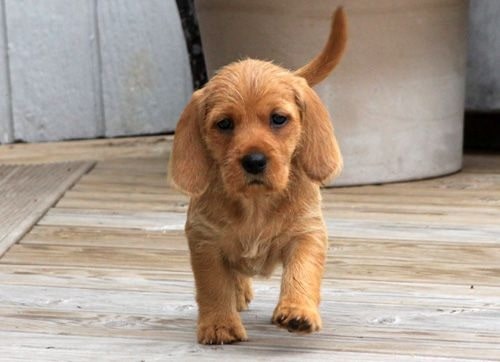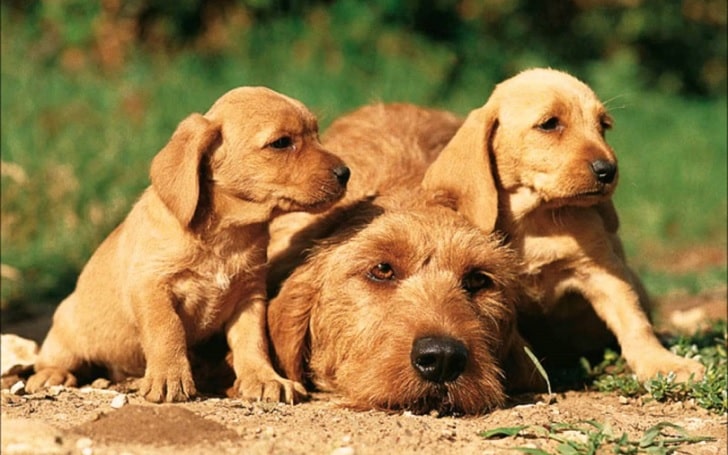Basset Fauve de Bretagne Puppies
Basset Fauve de Bretagne is a small-sized hound dog breed that was bred for hunting rats, rabbits, fox, hare, and wild boar. It is a very smart, devoted, and lively dog. Due to their size and temperament, they make an excellent family companion in a loving and active family.
The Basset Fauve de Bretagne can give birth to 4 to 6 puppies at a time. They need a good care as the puppies are very delicate and carelessness can lead to their death. So, in this article, you will learn about the methods of taking care of your Basset Fauve de Bretagne puppies.
Newborn Basset Fauve de Bretagne
Basset Fauve de Bretagne puppy at birth is blind, deaf, toothless for a few weeks. They need good care at this time as they are fragile and week who cannot do things on their own. Make a warm place for the mother so she can keep all her puppies warm and cozy. Since the puppies cannot generate heat on their own, the mother keeps them warm by keeping them close to her.
Neonatal Stage (0-2 Weeks)
Basset Fauve de Bretagne puppies only need to have their mother’s milk for a few weeks. The milk contains colostrum that is very rich in antibodies that will protect the puppies from any kind of serious health problem. They cannot walk, see, hear anything for two weeks after they are born. The puppies also cannot defecate on their own, so the mother stimulates them to pee and poop by licking their belly. Transitional Stage (2-4 Weeks)
They need a good amount of sleep at this stage for their proper physical and mental development. They should only wake up for food and should always be cozy. Otherwise, the puppies might die of hypothermia.

Image Source: Facebook-@Australia and New Zealand Basset Fauve De Bretagne
Transitional Stage (2-4 Weeks)
It is a big and important stage for the Basset Fauve de Bretagne puppies as they are able to see and hear for the very first time after birth. At 10-12 days, they open their eyes for the first time but will have only a vivid vision.
By the end of the second week, they are able to hear the sound and for the first time, they get to hear the sound of their mother. The vision slowly begins to get clear and they also start to walk some steps.
Socialization Stage (4-16 Weeks)
Socialization is very important in any puppy’s life. They need proper interaction with humans and other canines when they grow, so socialization is important. The perfect time for socializing the puppies is between 4 to 16 weeks. They should be slowly exposed to the outside world.
Do not take them to s very crowded place as they might get scared and become fearful. Leash train them first and when they learn to walk properly, take them out on a leash. Without a leash on, the puppies might runoff.

Image Source: pets4homes.co.uk
Vaccination against some of the diseases is required at this age like distemper, DHPP, adenovirus. The vaccination against rabies should be given between 12-24 weeks.
Juvenile Stage (3-6 Months)
Basset Fauve de Bretagne puppies reach the juvenile stage after the third month which lasts for 6 months. They slowly lose their puppy face and starts to get more of an adult looks. It is the right time for starting basic training like potty training and obedience training.
Their food needs to be switched from the puppy food to premium adult dog food. Provide them with a complete balanced diet and required supplements.

Image Source: Pinterest-@Paloma
Adolescent Stage (6-12 Months)
This is the time when the Basset Fauve de Bretagne puppies hit adolescence. They are grown up now with a strong built and the adult personality. They also experience the first heat of their life at the age of six months. However, mating or breeding at this time is extremely risky to their health. Therefore, for breeding, you have to wait for at least 16 to 18 months.
Visit Doglime for more dog breeds puppies development stage and behavior.
Tags










